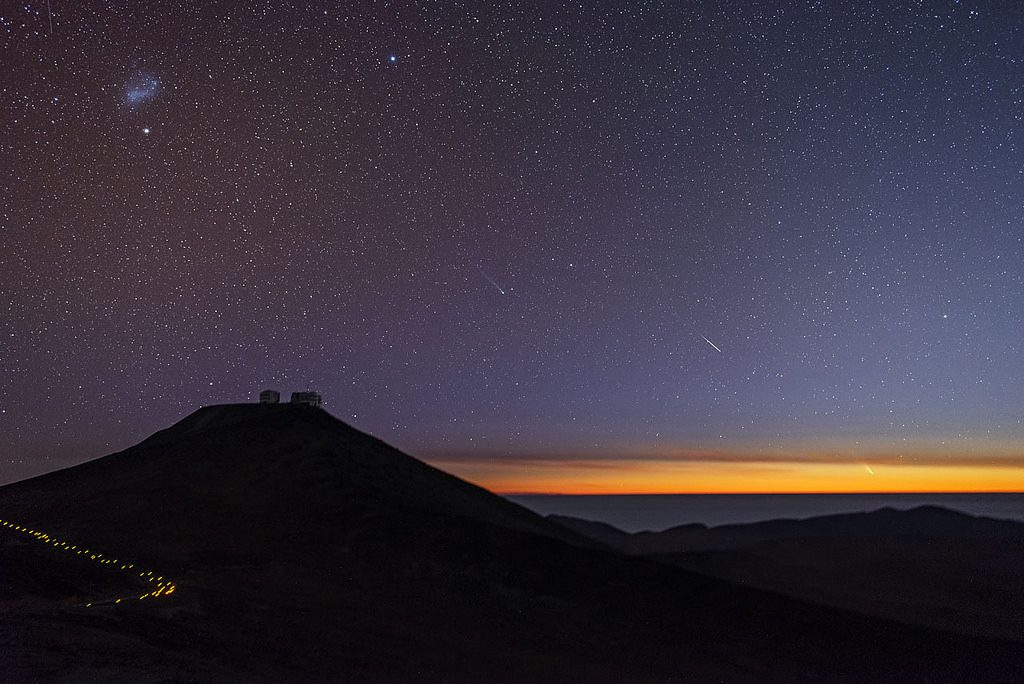Shooting stars set to light up the night sky
Shooting stars from the Geminid meteor shower will light up the night sky on Wednesday and Thursday nights, as Earth passes through the tail of an asteroid.
ANU astronomer Dr Brad Tucker said small rocks burn up in the atmosphere as meteors, producing a shower of light in the sky.
“This year, because the Moon will have already set, the sky will be nice and dark and so we will be able to see lots of faint, small meteors,” said Dr Tucker from the ANU Research School of Astronomy and Astrophysics.
“The asteroid, known as 3200 Phaethon, does one orbit in 1.4 Earth years, and as it passes around the Sun bits of the asteroid come off.”
Dr Tucker said the best time to see the meteor show would be after 11pm AEDT on Wednesday 13 December and Thursday 14 December.
“The spectacle will be even better in the early hours of the morning of the 15th, between 2am and 5am. People can expect to see dozens of shooting stars per hour,” Dr Tucker said.
The name Geminid comes from the Gemini constellation.

